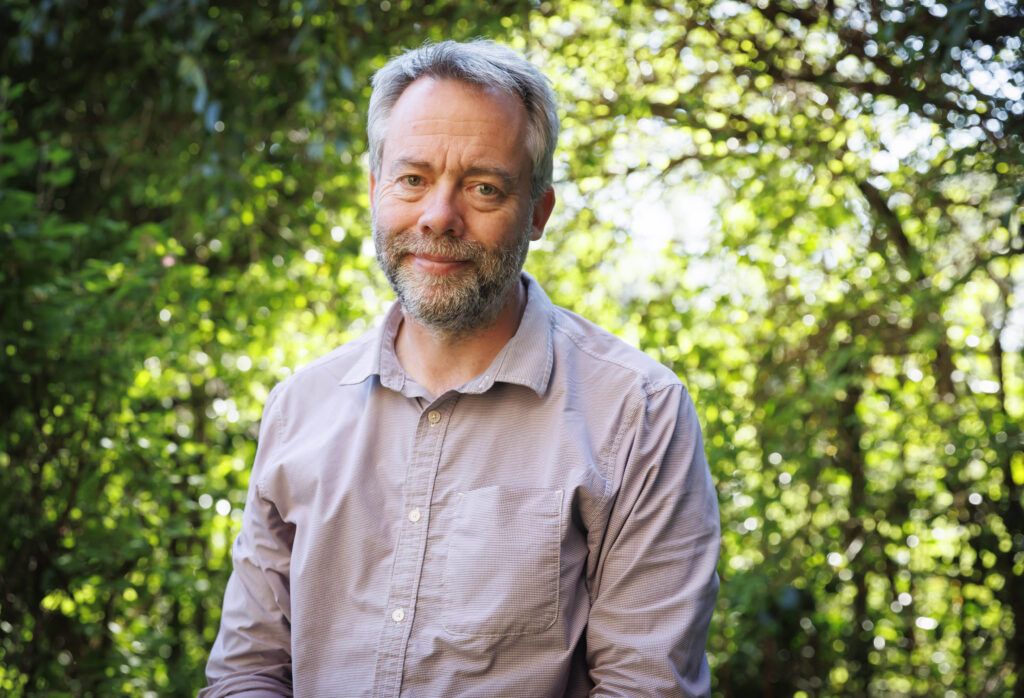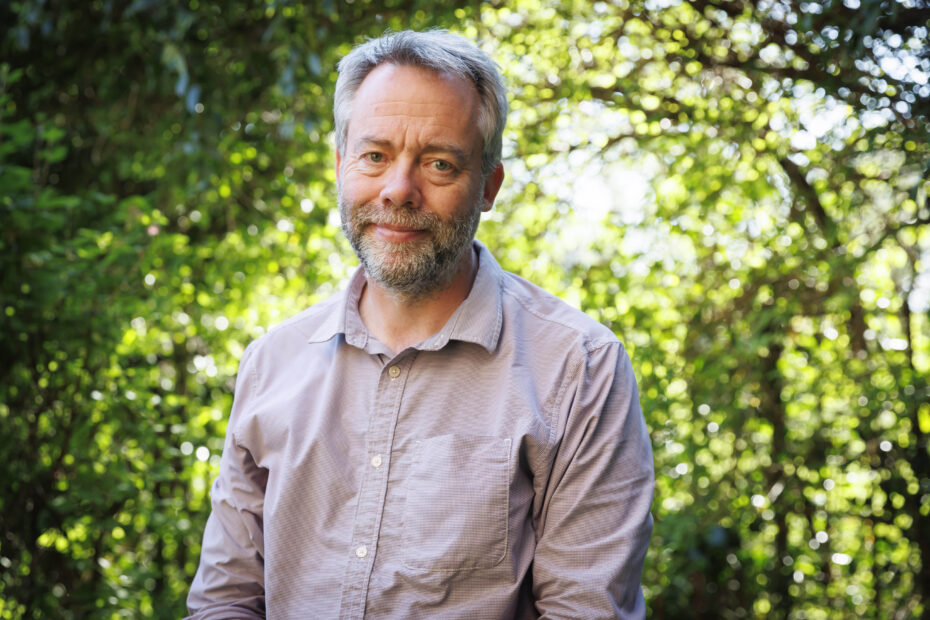
A patient who feels his life was saved by a simple bowel screening test is encouraging everyone to take the test when it drops through their door.
Colin Mearns, a 54-year-old photographer from Glasgow, made national news last month when he told his story, and explained how sending away his sample led to the early discovery of cancer.
Colin was one of thousands of people who are sent a bowel screening test every day. Everyone aged 50 to 74 years receives a kit every two years, and it only takes a couple of minutes to use the test and send it back for screening.
And for Colin, those couple of minutes meant his cancer was spotted early and, following an operation at the Queen Elizabeth University Hospital to remove the affected part of his bowel, he is now cancer free.
Bowel cancer is one of the most common cancers in Scotland. Around 4,000 people get it every year according to Public Health Scotland (PHS). It is treatable and curable – and if it’s found early nine out of ten people survive bowel cancer.
And that – the importance of early diagnosis – was the key for Colin.
He said: “Because I did the test and sent it back quickly, my tumour was still at the early stages, and while at the time it was very traumatic to hear the ‘C’ word, and to face up to the fact I had cancer, the quick treatment I received means I can now look forward to a life without cancer.”
PHS data shows that, while two-thirds of people who were sent the screening kit, did it and returned it, the other third don’t.
That’s a statistic that Dr Emilia Crighton, Director of Public Health at NHSGGC, would like to change.
She said: “If it’s detected early, bowel cancer is treatable and, in the vast majority of cases, curable.
“We understand that some people might put it off to a time when they’re less busy, or maybe just feel embarrassed about returning a stool sample, but we would encourage everyone not to wait.
“People like Colin are proof that taking this simple test really can change a life. Even if you’ve missed one in the past, taking the test when it drops through your door is so important.”
Dr Crighton stressed that taking the test and sending it back does not necessarily mean you will have to undergo a colonoscopy. In fact, only a relatively few – around 2-3% – have test results that suggest the need for a colonoscopy.
If in the unlikely event a cancer is found, doing the test in this way means it has been caught at an early enough stage that an operation is often enough to remove the cancer.
She also pointed out that if you find blood in your stool, or you worry you might have any other symptoms, you shouldn’t wait until the next test is posted to you.
“When it comes to bowel cancer, early detection is the key, so please don’t wait – if you’re experiencing symptoms that worry you, call your GP and get yourself checked out.”
To find out more about bowel screening or to order a test kit, go to NHS Inform. Alternatively, call the Scottish Bowel Screening Centre on 0800 0121 833.
To read Colin’s story, go to: Herald Scotland

